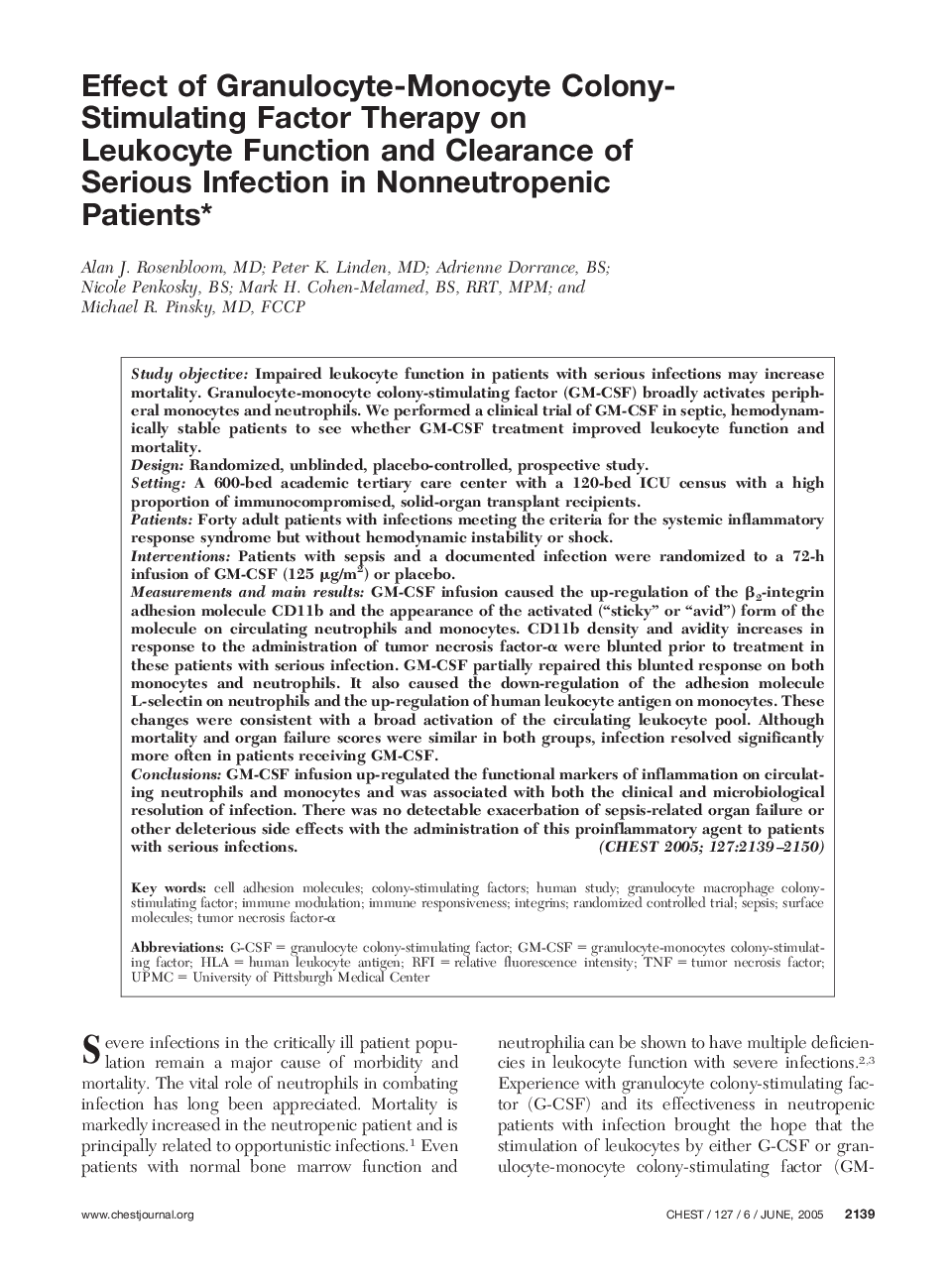| Article ID | Journal | Published Year | Pages | File Type |
|---|---|---|---|---|
| 2904803 | Chest | 2005 | 12 Pages |
Study objectiveImpaired leukocyte function in patients with serious infections may increase mortality. Granulocyte-monocyte colony-stimulating factor (GM-CSF) broadly activates peripheral monocytes and neutrophils. We performed a clinical trial of GM-CSF in septic, hemodynamically stable patients to see whether GM-CSF treatment improved leukocyte function and mortality.DesignRandomized, unblinded, placebo-controlled, prospective study.SettingA 600-bed academic tertiary care center with a 120-bed ICU census with a high proportion of immunocompromised, solid-organ transplant recipients.PatientsForty adult patients with infections meeting the criteria for the systemic inflammatory response syndrome but without hemodynamic instability or shock.InterventionsPatients with sepsis and a documented infection were randomized to a 72-h infusion of GM-CSF (125 μg/m2) or placebo.Measurements and main resultsGM-CSF infusion caused the up-regulation of the β2-integrin adhesion molecule CD11b and the appearance of the activated (“sticky” or “avid”) form of the molecule on circulating neutrophils and monocytes. CD11b density and avidity increases in response to the administration of tumor necrosis factor-α were blunted prior to treatment in these patients with serious infection. GM-CSF partially repaired this blunted response on both monocytes and neutrophils. It also caused the down-regulation of the adhesion molecule L-selectin on neutrophils and the up-regulation of human leukocyte antigen on monocytes. These changes were consistent with a broad activation of the circulating leukocyte pool. Although mortality and organ failure scores were similar in both groups, infection resolved significantly more often in patients receiving GM-CSF.ConclusionsGM-CSF infusion up-regulated the functional markers of inflammation on circulating neutrophils and monocytes and was associated with both the clinical and microbiological resolution of infection. There was no detectable exacerbation of sepsis-related organ failure or other deleterious side effects with the administration of this proinflammatory agent to patients with serious infections.
